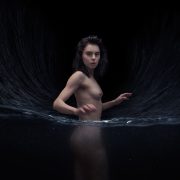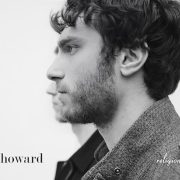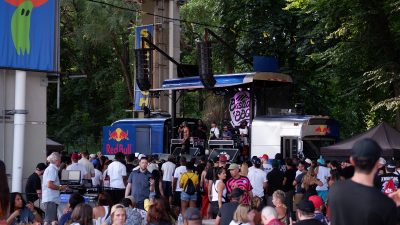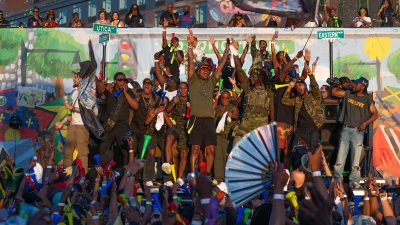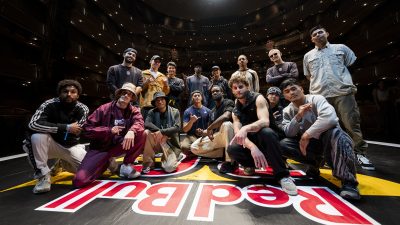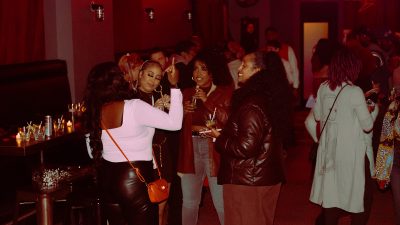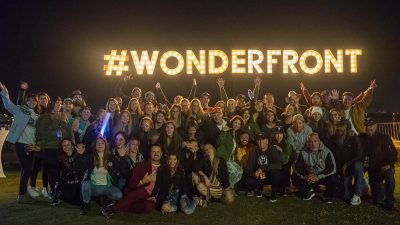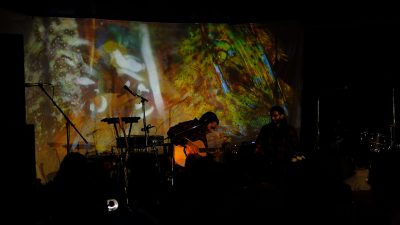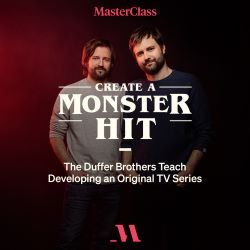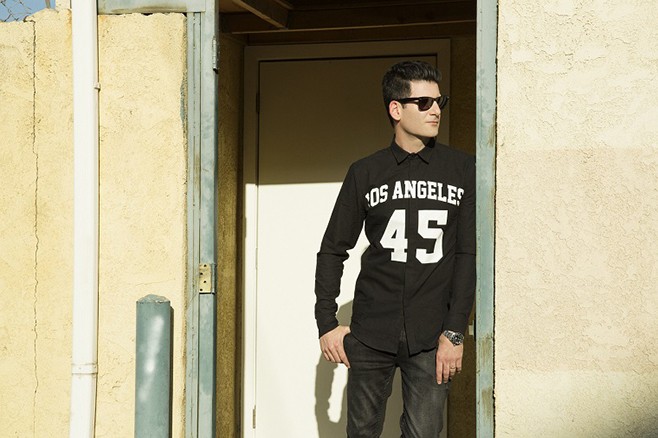
by Irene Lo
“I got to jump in on this conference call ‘cos we got all the Holy Ship people waiting. Definitely thanks. Bye.”
Gary Richards is a busy man, if you didn’t know already. Not only the founder of HARD, the music festival brand responsible for putting on highly anticipated events such as HARD Summer and Holy Ship!, Richards also moonlights as Destructo, a techno DJ whose songs Justice like to play in their sets. In fact, it was right as Richards had to leave I was about to ask whether he gets recognized more for being Gary Richards or Destructo. It’s a moot point, anyway. Known for combining business knowledge with quality sounds, Richards has built up a reputation in the music industry as a figure that delivers the numbers without sacrificing the taste.
Currently on his Ship2Ship tour with Anna Lunoe, Motez, and T. Williams, I chatted with Richards about his latest EP, West Coast, aptly named for its collaborations with Compton rappers like YG and Problem. Richards also had thoughtful views on copycat promoters and banning kandi at events.
Irene Lo: Your West Coast EP’s surprising for a DJ who’s known for techno bangers, but it makes sense for a promoter who’s booked performances like A$ap Mob, Lil Jon. I’m curious about how working on West Coast was different to your previous EPs.
Gary Richards: Working with rappers is a lot different – making a track to have more space for vocals, and just going into the studio with these guys. It’s a lot more fun than staring at the computer all day.
IL: The video for “Party Up” was entertaining in a different way to your previous videos by Agate Alexander. Do you put a lot of stock into your music videos or have you been lucky handing over creative control?
GR: I definitely want the songs to have a visual component about it. For “Party Up,” the original idea was we get on this bus and half the people are people who go to HARD, and half the people are people from YG’s world and they mesh, but I think YG’s people took over [laughs]. I wanted to do that kind of video one time, you know what I mean?
For “Higher” and “Technology” – there were no lyrics so it was better to have a concept because what would we be doing? We’re not singing anything. Both ideas were [Alexander’s] ideas. For “Higher,” I had very specific ideas about what I did not want, and how I wanted to portray what higher meant to me, and she nailed it. “Technology,” she asked me if I knew what a “real doll” was and I said no. There’s a factory where they make these dolls for ten grand and people will buy them and go on dates and have sex with them. She’s kind of crazy – she came up with this whole idea. She does all my videos for Hard too. All the funny ones. We got a good collab going. I let her do her thing.
httpv://www.youtube.com/watch?v=PgpnWJu7rog
IL: You’ve been releasing EPs fairly regularly, have you been devoting more time to crafting Destructo tracks, or just found yourself with more free time since Live Nation bought HARD?
GR: Well, I’ve always wanted to do more. Since Live Nation bought HARD, it’s enabled me to focus on music and be creative. In the beginning, the first EP [Technology] wasn’t anything more than “I’ll just try this.” Boys Noize liked it, and was like, we should put this out and then I ran into the guys from Justice and they said they play “Technology” in all their sets, and I should make more songs. It inspired me because fuck , if the guys from Justice are telling me to make more songs, maybe I should make more songs. That was a pretty pivotal moment.
IL: Ship2Ship is coming to Vancouver later this month with Motez and Anna [Lunoe]; what made you invite them on tour with you?
GR: I just love their music, first and foremost. They’re great people. T.Williams is on there too. Sleepy Tom’s cool but a lot of times we get in these clubs, the first DJ – they’re playing “Levels” or banging out EDM. I want to create a night where you can come to the show from start to finish, hear four different styles, all quality, all fit together. I was lucky enough that everybody was available we could do it.
IL: The promotion of smaller artists is one of the reasons I like HARD events – how do you keep up to trend on new sounds?
GR: ‘Cos I DJ, I’m always looking for something new to keep my head in the game. I’ll find tracks by Thee Cool Cats or Vanilla Ace and I’ll play them in a set. If I see they start delivering track after track then I’ll reach out, make a relationship. That’s what I’m most excited about too – developing new artists. I take it very seriously and I think because I’m a DJ and DJ a lot, it keeps me always paying attention.
IL: Another thing that sets HARD from other festivals in North America is a strong, eclectic international influence like the support of Australian, French, and British producers. Do you believe in North America there is a market with potential when EDM is what people automatically think of when they think of electronic music?
GR: It’s the promoter’s job. You can be a promoter like me – dig deep, do your homework, develop things, and turn people on to new stuff. And you can just want to sell tickets and book Tiësto again. To me, it’s a challenge. How can I put these names together, do the business that other people do and still deliver new quality stuff? It’s harder but it’s more rewarding, and I think what we’re doing is something that will last longer. Right now I’m trying to put together HARD Summer, there’s definitely some acts the top wants to play, and I’d rather just have the cool shit at the bottom and see if we can do it, if the people will support.
I think we’ve built up that audience where we can do that. Other parts of America could do it too but it’d take a lot of work on the promoter’s part to get the audience to think like you think. They’ll follow you if you give them good shit, but it’s been eight years of getting people into what we’re trying to do and now they’re on board… but LA’s a lot different to, say, Nashville. But if I lived in Nashville, I’m sure it would be the same thing. I just have to put in the work.
It’s the promoter’s responsibility. When you’re the promoter, there’s a lot you can do to mold artist careers and audience ears. You have the keys to the setting of what people will hear at a festival. It depends on how you want to lay it out – do you want to copy every other festival or do you want to be different?
IL: Last summer, the announcement that kandi and pacifers wouldn’t be allowed in HARD was one of the more noteworthy click-bait headlines. As someone organizing raves in the 90s, did you think about how concert-goers would see this negatively, as a non-inclusive decision?
GR: No, I don’t look at it that way. I’m the most open person in the book. I believe as long as you don’t hurt people, you can do whatever you want to do. The concepts we came up with were handed down to us from the fire department and the police. It’s a dress code like you go to a hip hop club and you’re not allowed baseball caps ‘cos they’re trying to keep gangsters out.
At this event we’re trying to keep a positive attitude, keep it not a giant rave. We’ve got to be a little more responsible in the way we act and if we don’t, we can’t have the event. It’s not “hey, don’t wear your bracelet” – I don’t care what you guys do. But there’s certain rules we’ve got to have in order to have these events. You got to pick and choose your battles.
Photo by Piper Ferguson


